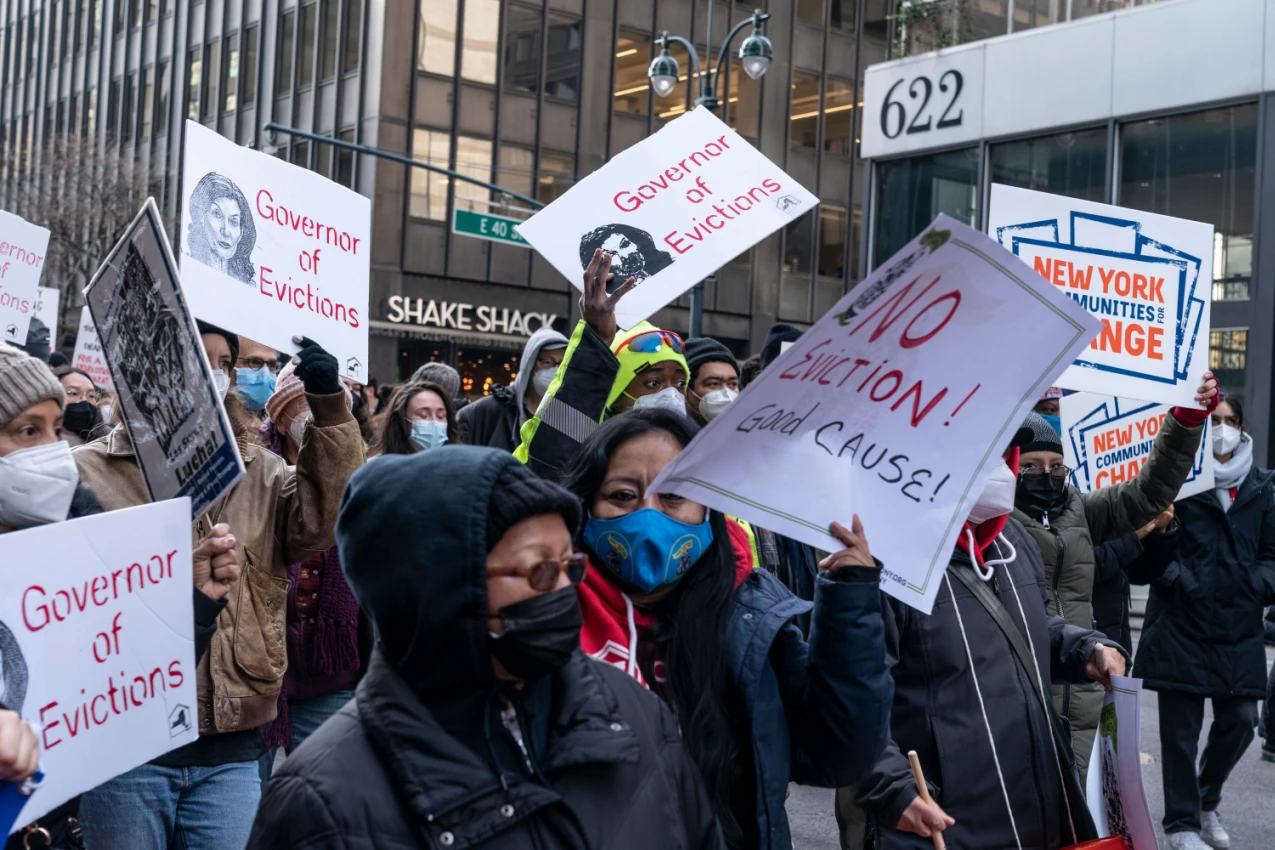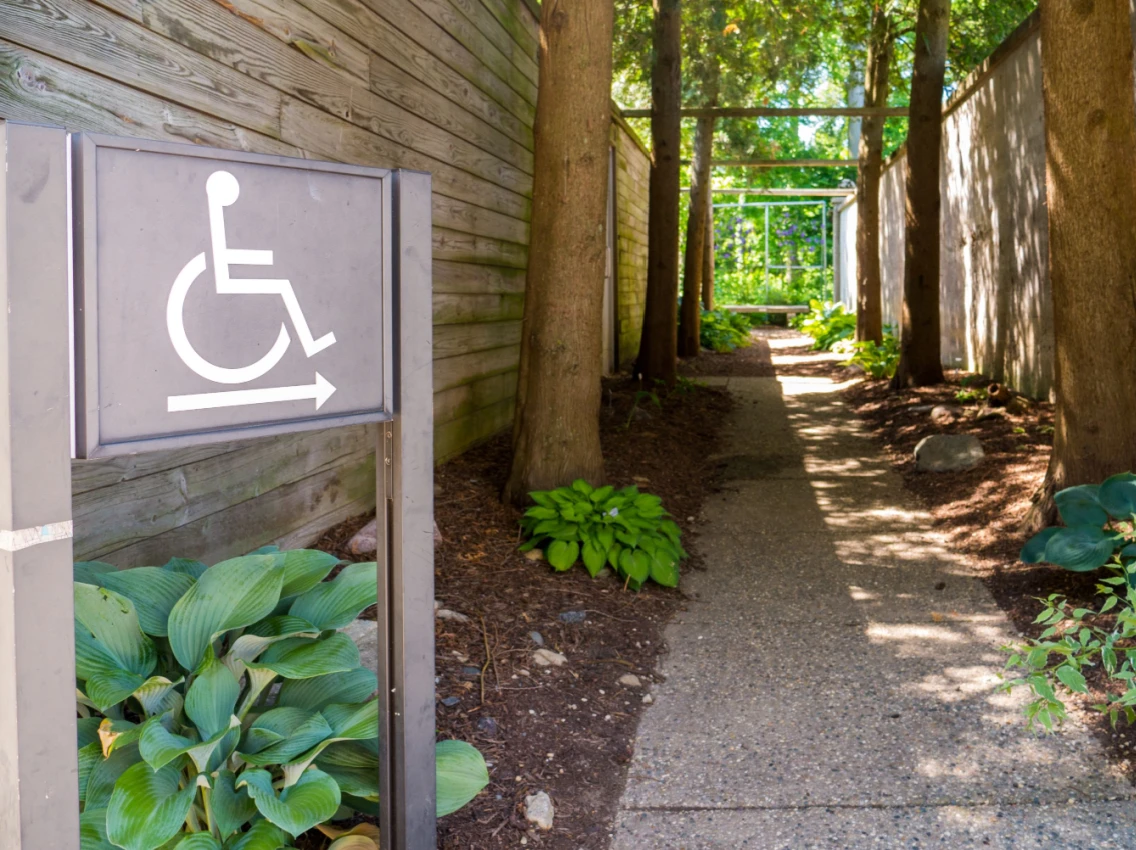How Renters Are Using TikTok, X To Defraud Landlords At Luxury Apartments
Renter application fraud has become a growing nuisance for apartment owners like Camden Property Trust, as more and more tenants provide fake documents to sign a lease and never pay rent, banking on a lengthy eviction process and lax enforcement.
But it became personal for Camden CEO Ric Campo when someone stole his identity to rent an apartment in Chicago, taking out a credit card in his name, maxing it out and defaulting on it. Campo said his credit score went down to 510 and he had to work for months to correct his credit report.
Then it happened again this summer at a competitor’s building in Charlotte.
“The competitor happened to know my name because we’re pretty well-known and they sent the information to the regional vice president and said, ‘By the way, is Ric Campo really trying to lease an apartment in Charlotte?’ And the answer was, no, he isn’t,” Campo said on an earnings call in August. “Having been personally [affected], where my identity was stolen and trying to rent apartments with our competitors, has been a real eye-opener. And it’s something that unfortunately is happening in our industry.”
 Campo experienced just one of the ways that fraudsters are discovering to live rent-free. TikTok and other social media platforms are allowing document and identity fraud to boom across the country, multifamily leaders told Bisnow, spurring a new real estate crime wave.
Campo experienced just one of the ways that fraudsters are discovering to live rent-free. TikTok and other social media platforms are allowing document and identity fraud to boom across the country, multifamily leaders told Bisnow, spurring a new real estate crime wave.
While the tactics vary, the results are almost always the same: Tenants get approved for luxury units, move in and never pay rent. Landlords start a lengthy eviction process, and with courts still bogged down from the pandemic-induced eviction moratoriums, cases can drag on for months. Before they can be resolved, the renters pack up and move out in the middle of the night.
“Our members would say there’s a cottage industry here of people learning about these kinds of tactics and learning about these kinds of fraud,” said Paula Cino, a vice president with the National Multifamily Housing Council. “It really is a new landscape for this appearing in our space.”
Reported internet-based real estate crimes have risen from $213M in 2020 to $350M in 2021 to $397M last year, according to the FBI’s internet crime reports.
Those crimes include renter fraud, as well as other forms of real estate scams. An FBI spokesperson said the bureau doesn’t investigate these types of crimes, and landlords have expressed frustration that state and local law enforcement officials have been slow or unwilling to respond to the rise in fraud.
The surge in this type of crime has come as apartment operators have pushed the leasing process to online platforms, meaning renters rarely come face-to-face with a property manager, making it easier to pass off fake IDs. In 2022, 23% of renters took zero in-person tours before signing a lease, 69% submitted their applications online and 36% signed their lease electronically, according to Zillow.
“With the advancements of online document-editing technology, it means that really, anybody can do it,” said Daniel Berlind, the CEO of multifamily application verification service Snappt. “If you think about the process and the technologies available to fraudsters five and 10 years ago, manipulating a bank statement, a pay stub … really any financial document would have required a pretty high level of skill.”
The frequency of renter fraud has even impacted the bottom lines of some of the biggest apartment owners in the country — Campo and Mid-America Apartment Communities CEO Eric Bolton mentioned the issue on earnings calls in recent months, singling out Atlanta as a market where these incidents are most common.
In an interview with Bisnow, Campo said local law enforcement has failed to go after those who used fake documents to skip out on rent. Prosecution is especially difficult when tenants use fake identities and vacate units before a magistrate court can order marshals to evict them.
“How do you pursue criminal fraud against somebody when you have no idea who they are?” said Campo, whose Houston-based firm owns 59,000 units across the country. “They ghost us. Because what’s the recourse? We have to file through the court system, and the court system is clogged.”
The TikTok Influence
A New York comedian went viral earlier this year with a clip explaining how she used Adobe Photoshop to alter her pay stubs and bank statements to afford to rent an apartment on her own. She later backtracked those comments and said, “To be clear, I was joking,” the Daily Dot reported.
But the social media landscape is rife with people who aren’t joking about how to commit application fraud.
Need Legal Help?
Chat with a real estate lawyer near you. It’s only $5 for a 1-week trial. Ask unlimited questions.
Pages like Fresh Documents and Hart2Hart Entertainment, Kivysaptapprovals on TikTok, CyberCredible on X, formerly Twitter, and the ApartmentHacks subreddit — which now threatens to ban any members that talk about faking pay stubs — all offer suggestions and products to create new financial forms and other information for customers to get around a credit check, according to Snappt, which helps landlords identify fraudulent applicants.
“There are entire online communities that collaborate to discuss fraud,” said Berlind, who runs Snappt as well as his own real estate firm, Berlind Properties. “There are videos on TikTok that have millions of views, showing how to edit documents. There are entire forums on Reddit that discuss properties and lease-up, what their concessions are and literally give walkthrough guidance to would-be fraudulent applicants and how they can circumvent the process.”
Bisnow reached out to each of the pages named by Snappt, but none responded.
TikTok prohibits attempts to defraud or scam community members and the platform removes content that violates that policy, a spokesperson told Bisnow via email. TikTok makes exceptions for content that the platform deems to be documentary, educational or counterspeech. The spokesperson declined to comment on specific accounts.
In the apartment leasing process, landlords require applicants to provide proof of identity, employment and income before granting approval. Traditionally, those would be printed and either mailed to a leasing office or handed over in person.
Since the pandemic, more apartment leasing is done online, with renters signing for apartments without even visiting the building. But as online leasing platforms have proliferated, so have scams designed to take advantage of them, industry experts said.
Prospective renters use documents such as doctored W2s, faked employment verifications and fake or stolen identities to skirt the screening process and get approval. Renters who submit fraudulent documents during the rental applications are seven times more likely to end up in eviction proceedings, Berlind said.
While widespread, the practice is especially common in a handful of major metropolitan areas, such as Atlanta, Houston, Charlotte, Los Angeles and suburban Dallas, Berlind said.
“I do think that new technology that’s available to people today has probably fostered some opportunity and techniques and certain capabilities in this area that are different certainly than where they were years ago and probably a little bit harder to detect,” Bolton, MAA’s CEO, said during an Oct. 26 earnings call, adding that the firm saw the uptick mainly isolated to “just a few properties in the Atlanta market,” prompting the firm to improve its screening process.
American Landmark Apartments Chief Administrative Officer Rachel Palmer said in an article posted a year ago on the National Apartment Association’s website that 40% of the applications the firm receives each month for its 35,000-unit portfolio are fraudulent, including with altered bank statements and fake pay stubs.
According to a 2022 Snappt survey reported by the NAA, 85% of property managers say they are seeing fraud in the application process compared to 66% prior to the pandemic.
In Camden’s 28,000-unit Atlanta portfolio, there have been 107 “high-balance skips” this year accounting for $1.4M of unpaid rent, Campo said. Bad debt in the portfolio has quadrupled since before the pandemic, he added.
Campo said in California, the firm has even resorted to paying tenants who have refused to pay rent to move, a decision that he said ultimately saves the firm money.
“People will try to beat the system as much as they can, and they’re pretty crafty,” he said.
‘They Just Walk By And Smile’
There are few opportunities for landlords to prosecute fraudsters, especially with courts still bogged down by a wave of eviction filings and local law enforcement declining to go after those who commit application fraud, Atlanta-area apartment owners said.
The RADCO Cos. CEO Norman Radow, whose firm manages 7,500 apartment units across the Southeast, said municipal governments and courts are already stretched thin on enforcement, and politicians are reluctant to add money to the system to speed up evictions.
“Defrauding landlords isn’t really on anybody’s hot list. Politicians, the last thing they want to do is, ‘Hey, I’m investing money to evict people faster,’” Radow said. “And the police won’t arrest them. They say it’s a civil matter.”
Atlanta multifamily owners who spoke to Bisnow partially blame the prevalence of fraud on an eviction backlog at Fulton County Magistrate Court, allowing tenants to stay in the units longer without paying rent. Tenants who leased apartments using falsified documents or even wholesale false identities rarely experience any repercussions, landlords said, with local law enforcement unable or unwilling to pursue legal action against the alleged grifters.
Many of the relevant law enforcement and government agencies in Atlanta declined to address rental application fraud when contacted by Bisnow. A spokesperson for the FBI said the agency doesn’t investigate these types of crimes and deferred comment to the Georgia Attorney General’s office.
Kara Richardson, the communications director for Attorney General Chris Carr, said the real estate industry has reached out to their office for information on how to prosecute application fraud. A member of the AG office spoke at last month’s Georgia Association of Realtors Broker Summit to offer guidance, she said. A GAR spokesperson declined to comment.
Richardson said the AG is limited in what it can prosecute. The responsibility for crimes regarding false or doctored documents falls to local law enforcement and district attorneys.
“For this reason, we helped to connect the Prosecuting Attorneys’ Council with some who work in the apartment industry and had previously encountered potential tenant fraud,” Richardson wrote in an email to Bisnow. “That said, our office is aware of this issue and stands ready to assist within the limits of our jurisdiction.”
Neither Fulton County District Attorney Fani Willis’ office nor officials with the Prosecuting Attorneys’ Council of Georgia returned multiple messages seeking comment for this story. Atlanta Mayor Andre Dickens, whose jurisdiction has been cited by landlords as a hotbed for this type of fraud, declined to comment. The Atlanta Police Department declined to comment, referring Bisnow to the Fulton County Marshal’s Department, which didn’t respond to a request for comment.
“Fraudsters are so emboldened because nobody does anything to them,” Campo said. “They just walk by and smile.”
The Magistrate Court of Fulton County — which handles eviction cases both for the county and city of Atlanta — has seen nearly 339,000 eviction cases between Jan. 1, 2019, and Nov. 20, 2023, Chief Magistrate Judge Cassandra Kirk told Bisnow via email. The courts closed on 301,585 of those cases. Of the remaining nearly 13,000 landlord-tenant cases, more than 11,500 were filed this year.
Kirk said the number of closed eviction cases could be higher if the court had more permanent staff to support the judges, adding that the court requested budget increases to hire two full-time judges to assist in Covid-held cases. Kirk said the court also is modifying its hearing schedule to attempt to close more eviction cases by dedicating more court sessions to evictions.
“While the court has offered several alternatives to decrease the open landlord-tenant cases, including adding early mediation options, increasing placement of additional cases on Tuesdays and Thursdays, as well as additional cases in other open calendar slots, those efforts have been slow to reduce the Covid-held and cases over 365 days old,” Kirk said.
While industry experts say application fraud is occurring at all types of apartment complexes, grifters more often target upscale properties in hot submarkets.
“[Fraudsters] tend to go to the highest-end properties and they tend to go to new properties,” Camden Executive Vice President Alex Jessett said during the firm’s third-quarter earnings call in October. “For example, our Downtown Houston building, which is a 22-story building in Downtown, has the most fraud of any building in Houston and also the highest rents of any building we have in Houston. And if you go to Atlanta Buckhead, I think we have 35 lease breaks there, and they were all fraudulent people.”
Berlind said his firm is seeing a similar trend, with fraudsters focusing on luxury apartment units. The motivation to use a fake document could be keeping up with the Joneses, but these crimes are proliferating amid a worsening housing crisis. More than half of all U.S. renters are cost-burdened, according to the U.S. Census Bureau, and more than a quarter of renters nationwide spend more than half their income on rent.
“It’s just a lot of things that are just kind of pushing folks in this direction,” Berlind said. “[Renters may say] ‘If I just move some numbers around, I’ll still be able to pay my bills and it’s a victimless crime.’”
Radow said he is seeing elevated levels of attempted application fraud in his portfolio: Leasing agents at two of his properties recently rejected half of its applications over suspected fraud, and another property’s leasing team rejected 80% of its applications, including people he said used fake names and fake pay stubs.
Radow said the practice, especially in Atlanta, could be chilled by a show of force by local law enforcement.
“I think if the D.A. comes out and arrests one group, it would stop it,” he said.
Source: Bisnow















 Accessibility
Accessibility